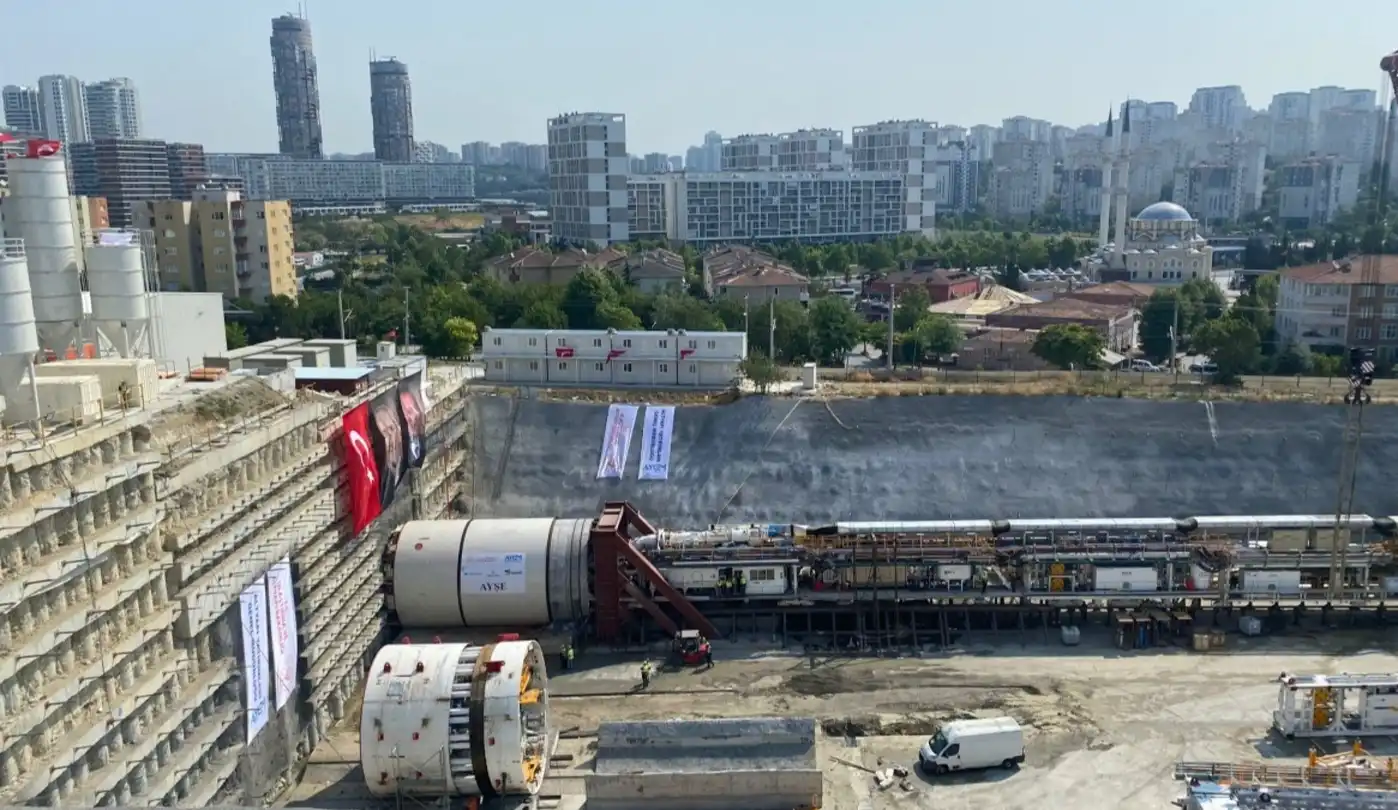With the start of construction of the Halkali to Ispartakule tunnel, the high-speed railway project’s concluding stage has commenced.
The principal rail link between Turkey and Western Europe is represented by the 229 km-long Halkali Kapikule Railway Project, which the Turkish government designated as the first part of the Asia-Europe Railway Corridor by connecting to the Trans-European Transport Network.
Abdulkadir Uralolu, Turkey’s Minister of Transport and Infrastructure, was present at the groundbreaking ceremony for the 9 km Halkali-Ispartakule line to commemorate the railway’s contribution to the nation’s connectivity with Asia, Europe, and Africa.
Translation of Uralolu’s statement from Turkish: “This railway line will further strengthen the relations between Turkey and the European Union and will reinforce our friendship.”
One of the most crucial connections between Europe and the portion of the Silk Road that runs through our nation is formed by this initiative.
The entire project, according to Uralolu, would cut the travel time from Halkali in Istanbul to Kapikule, which is on the border of Turkey and Bulgaria, by two and a half hours, from four hours to one and a half. Additionally, it will quadruple the current line capacity.
A group of regional building firms, including Gülermak Ar Sanay, Yap & Yap Inşaat, and Taşyap Inşaat, will construct the line’s last segment for TL6 billion ($223 million).
A 6.2 km long tunnel up to a 55 m depth will be bored through the Küçükçekmece Lake and the proposed Istanbul canal as the bulk of the high-speed rail project.
One of Turkey’s investments in high-speed rail is the Halkali Kapikule project, but another line connecting Mersin and Gaziantep is also under construction in the south of the country. This line recently received $867 million in funding from the UK Government through the UK Export Finance credit agency.
